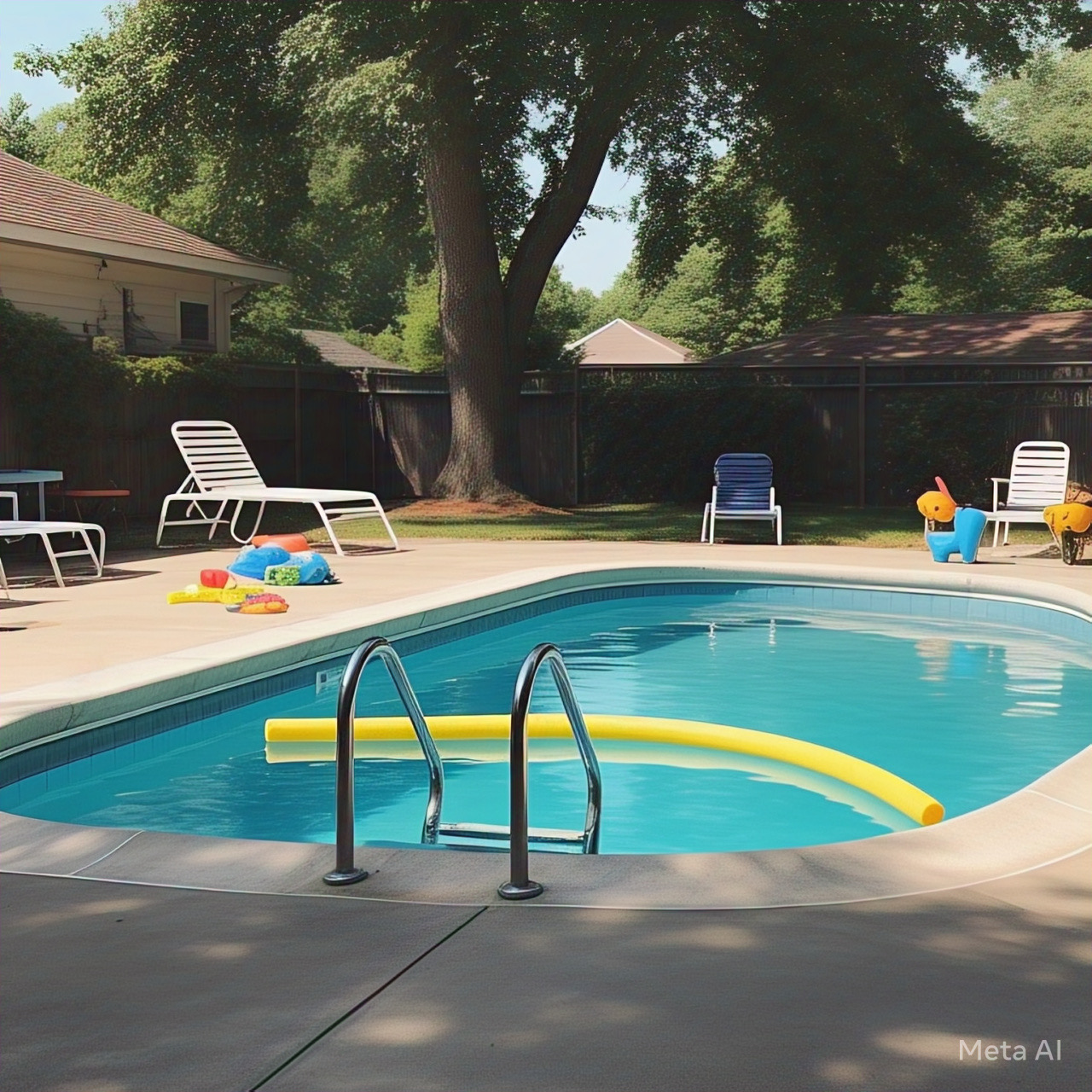
Swimming pools offer relaxation, exercise, and fun, especially in warmer climates. However, pools also pose potential dangers if not properly managed. Every year, accidents—including drownings, slips, and infections—occur due to poor safety measures. Ensuring a safe swimming environment is crucial for both private and public pools.
This guide highlights essential safety tips to help prevent accidents, making swimming an enjoyable and secure activity for everyone.
- Supervise Children and Inexperienced Swimmers
Children are at the highest risk of drowning, with many accidents occurring in unsupervised settings. Never leave kids unattended in or near a swimming pool. Even if they know how to swim, they should always be monitored by an adult.
Key Safety Tips:
Assign a responsible adult to watch children at all times.
Avoid distractions, such as using a phone, while supervising kids.
If possible, enroll children in swimming lessons early to boost water confidence and skills.
Use floatation devices for children who are not confident swimmers, but never rely on them as a substitute for supervision.
- Install Proper Pool Barriers and Safety Equipment
Having proper barriers and safety tools can prevent unauthorized or accidental pool access, reducing the risk of drowning.
Essential Safety Features:
Fencing: Install a pool fence at least 1.2 meters (4 feet) high with a self-latching gate to keep children and pets from wandering in.
Pool Covers: Use secure pool covers when the pool is not in use to prevent accidental falls.
Alarms: Consider installing pool alarms that alert homeowners if someone enters the pool area unexpectedly.
- Learn and Practice CPR (Cardiopulmonary Resuscitation)
In case of an emergency, knowing CPR can save lives. Drowning victims can suffer severe oxygen loss in just a few minutes, so immediate action is crucial.
CPR Tips:
Take a certified CPR course to learn proper techniques.
If someone is unresponsive after being pulled from the water, perform CPR while waiting for emergency medical assistance.
Encourage pool staff, lifeguards, and caregivers to undergo CPR training.
- Maintain Clean and Clear Pool Water
Poorly maintained pool water can cause infections, skin irritations, and even respiratory issues. Regular cleaning and chemical balancing ensure a safe swimming environment.
Pool Maintenance Essentials:
Regularly test chlorine and pH levels to keep water sanitized and prevent bacteria buildup.
Clean debris and dirt from the pool to avoid clogging filters and promoting algae growth.
Ensure good water circulation to prevent stagnant water, which can harbor bacteria and mosquitoes.
- Follow Safe Diving and Jumping Practices
Diving accidents can cause severe head, neck, and spinal injuries. Many pools in Nigeria and West Africa are not designed for diving, making it crucial to follow safety precautions.
Diving Safety Tips:
Never dive into shallow water; always check pool depth before jumping in.
Avoid running and jumping near the pool’s edge to prevent slips and falls.
Place warning signs near shallow areas to discourage diving.
- Prevent Slips and Falls Around the Pool
The poolside area is often wet and slippery, increasing the risk of falls. Injuries from slipping can range from minor bruises to serious fractures.
How to Prevent Slips and Falls:
Use slip-resistant tiles or rubber mats around the pool area.
Keep pool decks dry by mopping up excess water.
Encourage swimmers to walk, not run, around the pool.
Ensure proper lighting around the pool, especially for night swimming.
- Avoid Swimming Alone
Swimming alone is risky, even for experienced swimmers. Unexpected cramps, exhaustion, or water-related accidents can occur at any time.
Buddy System Rules:
Always swim with a companion, especially in deep pools or open water.
In public pools, lifeguards should always be on duty.
If you experience fatigue or cramps while swimming, exit the water immediately and rest.
- Educate Swimmers on Safe Pool Behavior
Many pool accidents result from reckless behavior. Enforcing pool rules ensures safety for everyone.
Basic Pool Rules:
No running, rough play, or pushing others into the pool.
No food, drinks, or glass bottles near the water.
Do not enter the pool under the influence of alcohol or drugs.
Take breaks to avoid exhaustion, especially under hot weather conditions.
- Protect Against Sunburn and Dehydration
In tropical regions like Nigeria, sun exposure can lead to sunburn and dehydration, especially for swimmers spending long hours in the water.
Sun and Hydration Safety Tips:
Apply waterproof sunscreen (SPF 30 or higher) before swimming.
Wear hats, sunglasses, and UV-protective swimwear when out of the water.
Drink plenty of water before and after swimming to stay hydrated.
- Be Cautious with Pool Chemicals
Pool chemicals are necessary for maintaining hygiene, but improper handling can be hazardous.
Chemical Safety Guidelines:
Store chemicals in a cool, dry place, away from children.
Follow manufacturer instructions when adding chemicals to the pool.
Never mix different pool chemicals, as they can produce toxic gases.
Allow time for chemicals to dissolve before allowing swimmers back into the pool.
- Know the Signs of Drowning
Drowning doesn’t always look like the dramatic struggles seen in movies. In many cases, it is silent and quick.
Warning Signs of Drowning:
Inability to call for help due to lack of breath.
Head tilted back, mouth at water level.
Arms moving downward, as if trying to push up.
Glassy or closed eyes, with little movement.
If you notice someone exhibiting these signs, act immediately by pulling them to safety and calling for emergency assistance.
Final Thoughts: Creating a Safe Pool Environment
A swimming pool should be a place of fun, relaxation, and fitness—not a site for preventable accidents. By following these safety tips, you can protect yourself, your family, and others from common pool hazards.
Whether you own a private pool in Lagos, visit a resort in Accra, or enjoy a public facility in Abuja, always prioritize safety. Responsible pool management and adherence to safety guidelines ensure that swimming remains an enjoyable and risk-free activity for everyone.

